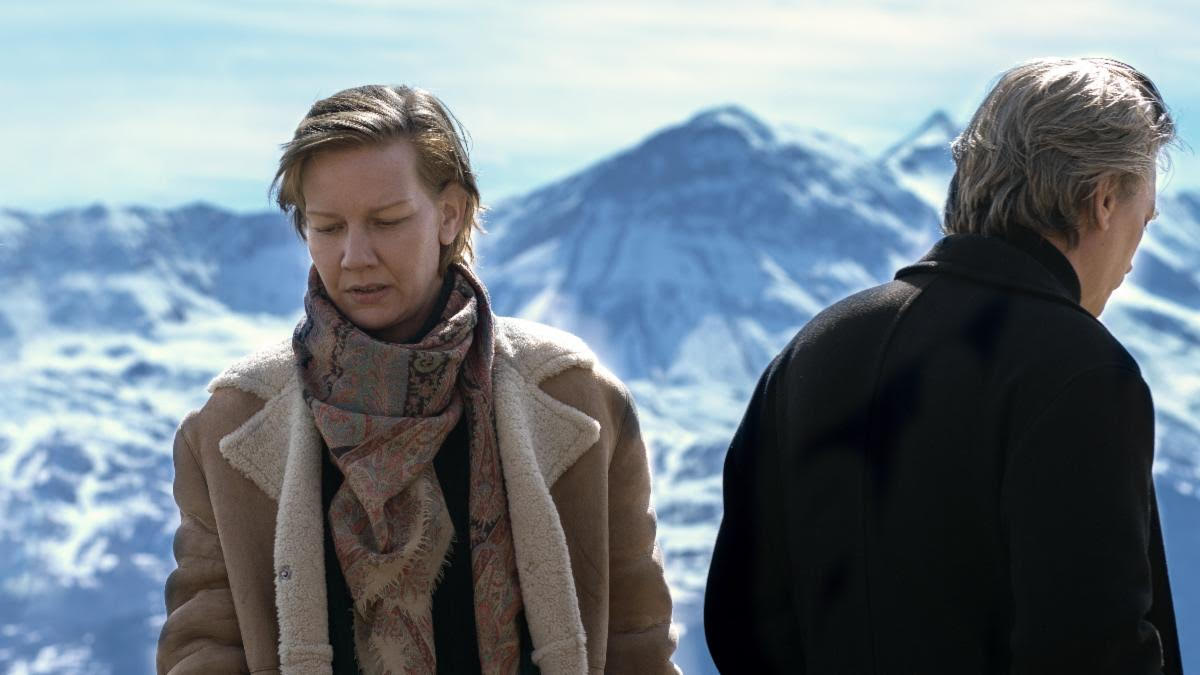
Anatomy of a Fall’s fate as one of the best films of the year was sealed when it won the Palme d’Or at Cannes – and there’s no doubt that it earned that prize. Justine Triet creates an exemplary courtroom drama, an intense psychology journey that examines the anatomy of not only a crime but of human emotion, a marriage and artists. The skill in Triet and Arthur Harari’s script, along with Sandra Hüller’s spellbinding performance, create a masterwork that lingers on the mind long after the credits roll.
Living in the French Alps would be idyllic to most, but for Sandra (Sandra Hüller), it’s anything but. She’s an author and lives a secluded life with her husband Samuel (Samuel Theis), who’s also an author, and their young son Daniel (Milo Machado-Graner). Far from her native Germany, she’s lonely. Often seeking comfort in the arms of other people. Her relationship with her husband isn’t perfect, the deafening environment he creates speaks as much. As loud as the film’s introduction is, thanks to Samuel’s blaring music, it quickly falls to silence in blood-covered snow. Samuel is found dead, falling to his death from the top window of their chalet. Accident? Suicide? Murder? All possibilities are proposed, but suspicion quickly turns to Sandra. What proceeds is an almost two-and-a-half-hour procedural drama into the circumstances of Samuel’s death.

Nothing is secret, save for the truth. The mystery of what happened on the day of Samuel’s death slowly unravels in an engrossing investigation. Every aspect of the crime is probed. Every inch of Sandra’s home is picked apart, from the material to the relationship within. She’s adamant about her innocence, but doubts are constantly cast. Even Daniel doesn’t know what to believe, working as a stand-in for the audience. At one point, the film’s editing gives the effect that he’s visualizing all different scenarios in his mind like we are. The complexity of the case becomes more apparent when the issues surrounding Sandra and Samuel’s marriage come to the surface. The relationship between these two artists is one of explosive conflict. All fights alone, both together and against each other, are presented as evidence of Sandra’s possible culpability. The anatomy of their relationship is dissected as much as Samuel’s body is on the coroner’s table.
Enthralling above all is Hüller’s powerful performance, containing a profound magnetism that’s impossible to look away from. There’s always that one performance in a year that sticks with you and hers will remain for many with great emotional force. Despite Sandra’s life crumbling around her, the actor carries her character with so much strength and passion as a mother who, despite the grief she might be feeling, is keeping it together for the sake of her son. Hüller also has a charming sense of humor that adds light to all of the gloom (an added coping mechanism, perhaps). However, under the surface, you can see pain and billowing anger. The focus isn’t solely on a wife accused of murder, it’s also about a son who lost his father. Machado-Graner delivers one of the best child performances in recent memory. All upset, confusion, and internal conflict are conveyed in a stirring way that feels true to life.
Fiction and reality are at odds in Anatomy of a Fall. Even when the film concludes, the case still lingers in the mind. Like an investigator obsessed with analyzing every inch, piecing together every puzzle, we can’t let it go. It’s a brilliant tour de force for everyone involved, one that hopefully won’t lose any of its momentum.
Anatomy of a Fall was screened as a part of the 2023 Toronto International Film Festival.



